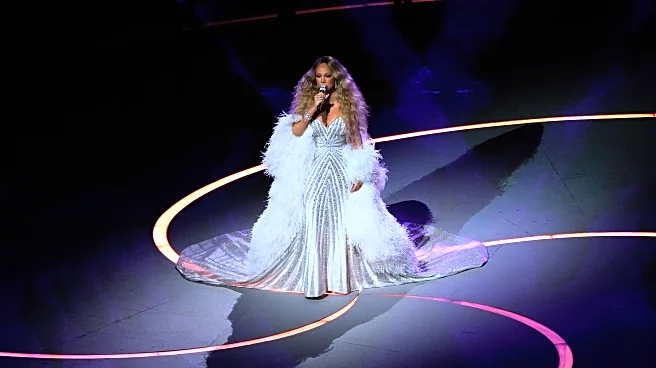Rapid Read • 8 min read
Robert F. Kennedy Jr. has announced the cancellation of 22 projects totaling $500 million aimed at developing vaccines using mRNA technology. These projects, led by major pharmaceutical companies such as Pfizer and Moderna, were focused on creating vaccines for respiratory viruses including COVID-19, flu, and H5N1. Kennedy, a known vaccine critic, has previously pulled back recommendations for COVID-19 vaccines and dismissed the panel responsible for vaccine recommendations. He has expressed concerns over mRNA technology, advocating for alternative vaccine strategies that he believes are safer and more adaptable to virus mutations.
AD
The decision to halt mRNA vaccine projects has significant implications for public health and vaccine development. mRNA technology has been credited with rapid vaccine production during the COVID-19 pandemic, potentially saving millions of lives. Experts warn that abandoning mRNA projects could hinder efforts to combat future pandemics, as the technology allows for quick adaptation to new virus strains. The shift away from mRNA could impact ongoing research into its applications beyond infectious diseases, such as cancer immunotherapies. The move signals a change in vaccine development priorities, with potential consequences for global health preparedness.
The Department of Health and Human Services plans to invest in alternative vaccine strategies, including the development of a 'universal vaccine' that mimics natural immunity. This approach aims to provide protection against a broader range of viruses, including coronaviruses and flu. The administration's focus on new vaccine platforms may lead to innovative solutions, but the effectiveness and timeline for these developments remain uncertain. Stakeholders in the pharmaceutical industry and public health sectors are likely to respond to these changes, potentially influencing future vaccine research and policy decisions.
The cancellation of mRNA projects raises ethical and scientific debates about vaccine safety and innovation. While mRNA technology has proven effective, concerns about its long-term implications and adaptability persist. The decision reflects broader societal discussions on vaccine trust and the balance between rapid technological advancement and traditional methods. As the health department shifts its focus, the role of mRNA in future medical breakthroughs, including cancer treatment, may be reevaluated, impacting research funding and public perception.
AD
More Stories You Might Enjoy













